How to secure your home UK
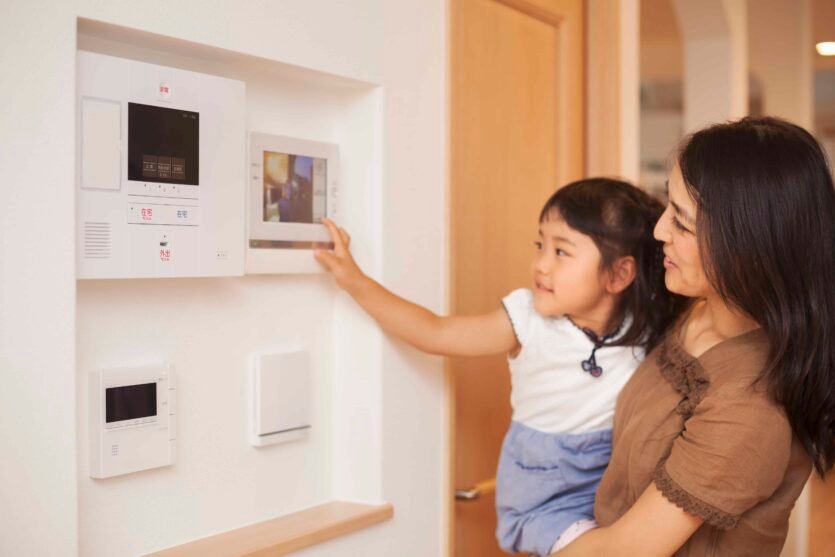
We may earn a small fee from the companies mentioned in this post.
The Ultimate Guide to Home Security
In today’s rapidly changing world, it is essential you secure your home, this has become more crucial than ever. With burglary rates fluctuating and new advancements in technology, it is essential to stay informed and protect your property against potential threats.
In this blog post, we will explore the different aspects of securing your home, from assessing your needs to choosing the right system and enhancing security measures even on a budget.
Drawing upon compelling facts like how 76% of people within the UK use some form of protection for their homes – join us as we navigate the ins and outs of safeguarding your sanctuary and discover top-notch solutions that give you peace of mind.
Key Takeaways
Identifying potential threats to your home security is the first step in creating a safe environment. Assessing your needs, understanding required security levels, and considering the budget can help you make informed decisions.
Choosing the right home security system involves evaluating professional monitoring options, looking for key features such as wireless connectivity and motion sensors, and selecting a system that meets your specific needs.
Enhancing your home security measures through tips such as securing doors and windows with sturdy locks, installing outdoor lighting, and securing valuables in a safe or lock box can significantly reduce the chances of break-ins. Remember that homes with security systems are less likely to be targeted by burglars, secure-your-home.
Assessing Your Home Security Needs
To properly assess your home security needs, start by identifying potential threats such as break-ins and thefts that may be prevalent in your area.
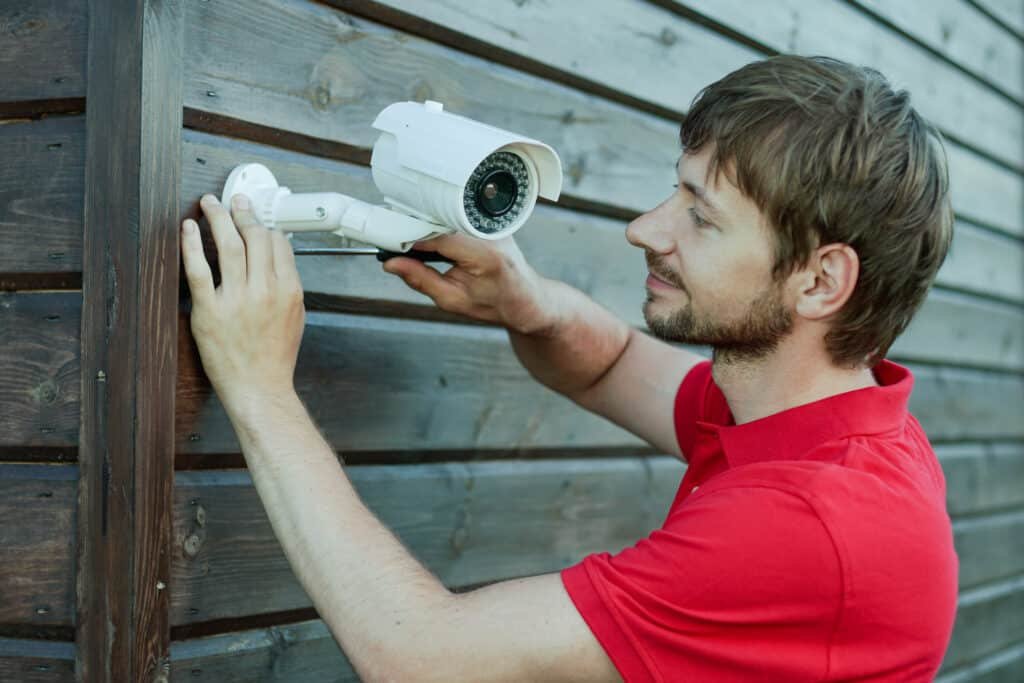
Identifying Potential Threats
Identifying potential threats to your home security is the first step in creating a safe and secure environment for you and your family. This involves analysing the weaknesses in your property’s safety measures, such as poorly lit areas, easily accessible entrances, or overgrown bushes that provide cover for intruders.
To identify these threats effectively, take a walk around your property both during daylight hours and at night. Observe any possible hiding spots where someone could lurk undetected or entry points that could be exploited by burglars – like open windows or flimsy locks on doors.
In fact, approximately 30% of burglaries occur through an open or unlocked window or door.
Understanding The Required Security Levels
To ensure that your home is adequately protected, you must first understand the required security levels. This means you need to assess the potential threats and vulnerabilities of your home.
You should also consider the value of what you are trying to protect and how likely it is to be targeted. For instance, if you have valuable possessions like jewellery or electronics in your home, it’s essential to take extra steps to keep them safe.

By understanding these factors and deciding on an appropriate level of security for your needs and budget, you can give yourself much-needed peace of mind knowing that your property and loved ones are well-protected against any potential threats or intruders.
Considering The Budget
When it comes to home security, the cost can often be a concern for homeowners. However, there are many options available to fit different budgets. It’s important to prioritize the most essential security measures and invest in those first before considering more luxurious features.
For example, installing secure door and window locks is a fairly affordable measure that can greatly improve your home’s safety.
According to recent reports, most residents believe that cost is a barrier when it comes to implementing home security measures. However, it’s worth keeping in mind that homes with security systems are less likely to be targeted by burglars – which could save you money in the long run.
Choosing The Right Home Security System
You can choose from a wide variety of home security systems, such as wired and wireless options, but it’s important to consider the features that meet your specific needs.

Professional monitoring, smart home integration, and remote access are among the top features to look for when selecting a system.
Types Of Home Security Systems
There are various types of home security systems available in the market today. Here are some popular options:
Burglar Alarms: These systems use sensors to detect motion, and when activated, they set off a loud alarm to alert homeowners or neighbours.
CCTV systems: Closed-circuit television or CCTV can monitor activities both inside and outside the home. It provides live footage that can be viewed remotely through a phone app.
Access Control: This type of system uses biometric authentication or card access to control who can enter a property.
Motion Sensors: These devices detect motion in specific areas of the property and trigger an alarm if there is an unauthorized entry.
Smart Home Security: This system connects with other smart home devices such as door locks, cameras, smart lights, and more. It allows homeowners to monitor their home remotely through a smartphone app.
Door and Window Locks: A simple but effective option for securing homes is installing quality locks on all doors and windows.
Security Cameras: They come in different forms such as wireless cameras, hidden cameras, doorbell cameras which improve visibility both inside and outside the property.
Smoke Alarms: Smoke alarms detect smoke from fire outbreaks, triggering an alarm that alerts homeowners at any time of day or night.
Remember to assess your security needs before making a final decision on which type of system to invest in, taking into account your budget and level of required security for your space.
Features To Look For
When choosing the right home security system, it’s important to consider the features that will provide the most comprehensive protection for your home and family. Here are some key features to look for:
Professional monitoring: Having 24/7 professional monitoring ensures that authorities will be alerted in case of an emergency.
Wireless connectivity: A wireless security system allows for easy installation and can be controlled remotely via a smartphone app.
Motion sensors: These detect movement within your home and trigger an alarm if unexpected activity is detected.
Door and window sensors: These alert you when doors or windows are opened or closed, helping to prevent break-ins.
Security cameras: Surveillance cameras provide additional monitoring, allowing you to keep an eye on your home when you’re away.
Smart technology: Some systems offer automation features such as smart locks, which allow you to control who enters your home remotely.
Smoke detectors and carbon monoxide detectors: These alert you in case of fire or gas leaks, providing early warning and potentially saving lives.
By looking for these features in a home security system, you can ensure that your home is protected against a variety of potential threats.
Evaluating Professional Monitoring Options
Another important aspect to consider when choosing a home security system is the option for professional monitoring. This means that your security system will be monitored by a team of professionals who will alert you and/or emergency services if there is an intrusion, fire or other emergency detected in your home.

While this may seem like an additional expense, it can provide peace of mind knowing that trained professionals are watching over your home at all times. Some companies offer 24/7 monitoring services for an additional monthly fee, while others include it in their package price.
It’s also worth noting that some insurance policies may require professional monitoring as a condition of coverage.
Statistics show that homes with security systems are less likely to be targeted by burglars, making investing in a home security system and considering professional monitoring options well worth the cost.
Enhancing Your Home Security Measures
Secure your doors and windows with sturdy locks and considers using door and window sensors. Install outdoor lighting to discourage burglars from approaching the house, but be sure not to create any shadows that could hide them from view.
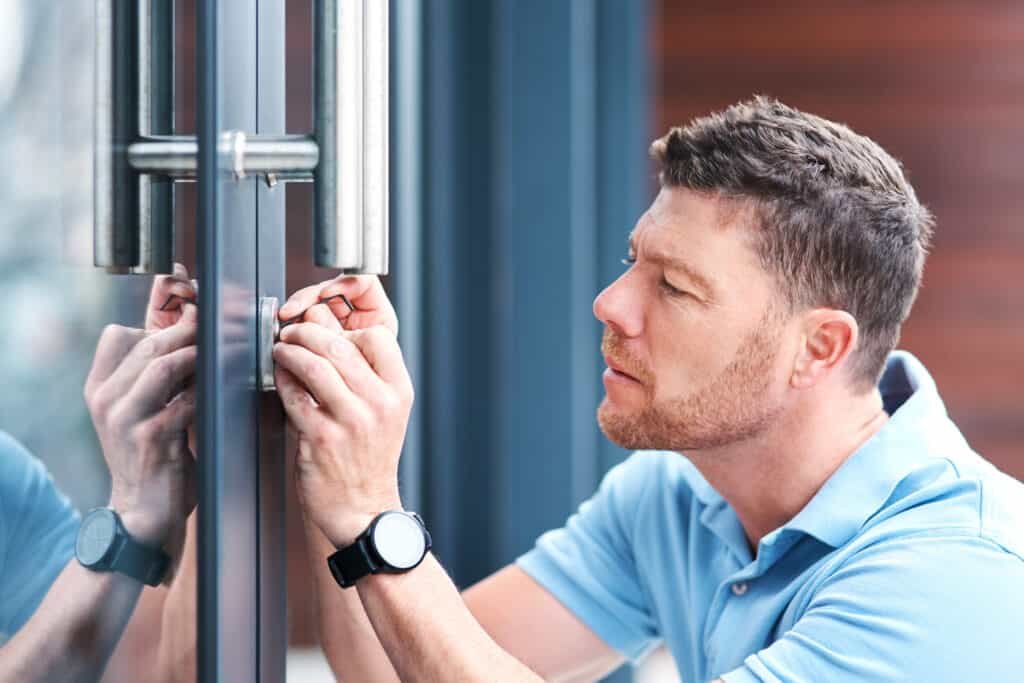
Tips For Securing Doors And Windows
Securing the doors and windows in your home is crucial for ensuring the safety of your family and valuables. Here are some tips to help you reinforce their security
Install sturdy locks: Consider installing deadbolts on all exterior doors, and use high-quality locks that cannot be easily picked or forced open.
Add a door reinforcement kit: These kits reinforce the doorjamb and hinges, making it harder for burglars to kick in the door.
Use security bars: Security bars can prevent intruders from entering through ground-level windows.
Keep windows locked: Ensure all windows are locked, especially those located on the main floor or easily accessible by climbing.
Consider adding window film: Window film can make it harder for burglars to see inside your home, deterring them from breaking in.
Secure sliding doors: Use a security bar or dowel in the track of sliding glass doors to prevent them from being opened from outside.
Keep bushes and shrubs trimmed: Overgrown landscaping provides cover for intruders trying to enter through doors or windows unnoticed.
Use smart technology: Smart locks and sensors can alert you when someone tries to tamper with your doors or windows, giving you an immediate warning.
By following these simple steps, you can significantly reduce the chances of break-ins and keep your loved ones safe and secure at home.
Installing And Maintaining Outdoor Lighting
Outdoor lighting can be an effective way to deter burglars and keep your home safe. Installing motion-activated lights near entrances or in dark areas of your property can alert you to any suspicious activity.
Additionally, using eco-friendly LED lightbulbs can save energy and reduce maintenance costs while still providing adequate illumination outside your home.
By investing in good quality outdoor lighting systems, you not only add a layer of security but also enhance the overall aesthetic appeal of your home’s exterior.
Securing Valuables
It’s important to take steps to secure your valuables in order to protect them from potential burglars. One of the best ways to do this is by investing in a home safe or lock box where you can store jewellery, cash, and other valuable items.
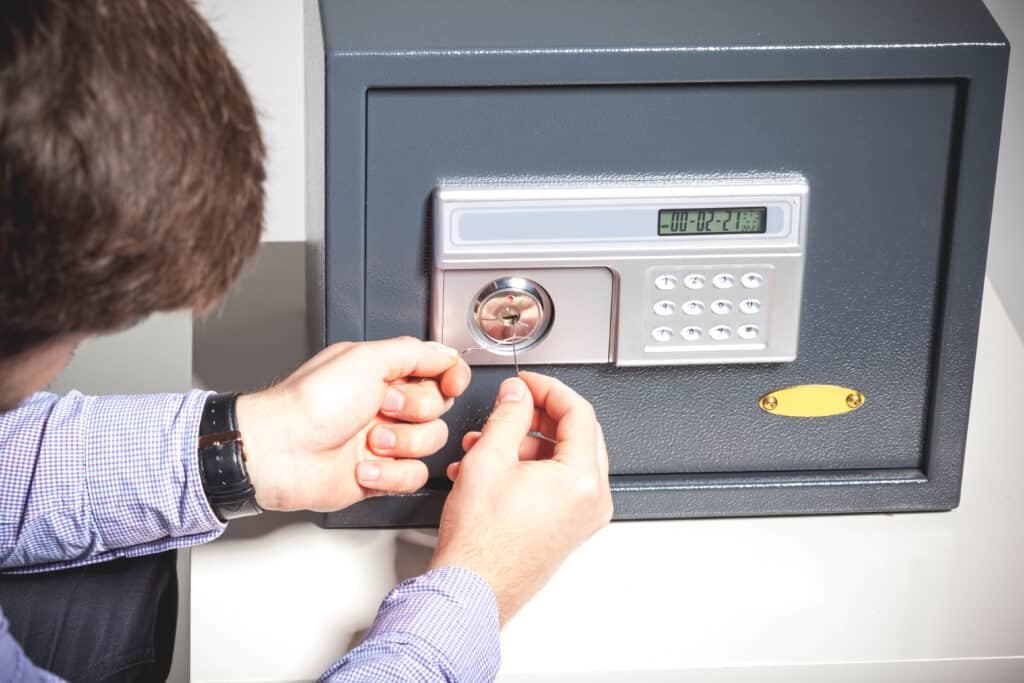
Make sure that you install the safe correctly and securely bolt it down so that it cannot be easily removed by a thief.
Another way to keep your valuables secure is by keeping them out of sight from prying eyes. Avoid leaving expensive items visible near windows or doors, as these are prime targets for thieves looking for easy access points into your home.
Remember that even small measures can make a big difference when it comes to securing your valuables at home.
Introduction Of Security Cameras
Security cameras have become an increasingly popular tool for enhancing home security measures. These high-tech devices offer additional protection by recording any suspicious activity that may occur on your property.
With advancements in technology, some cameras even come with motion sensors and night vision capabilities to capture footage at any time of the day or night.
One benefit of having security cameras is that they can provide valuable evidence when reporting a crime to the police.
Burglars know this increase in awareness means there is a higher chance that their actions will be caught on camera; therefore it makes sense for them not take any unnecessary risks while committing burglary crimes as it increases their chances of getting caught red-handed.
Overall, incorporating security cameras into your home security system could be beneficial in deterring burglars from targeting your property as well as aiding authorities in catching criminals if anything does happen within those perimeters; making it an investment worth considering if one wants better protection against potential threats.
Home Security On A Budget
There are many affordable options available for those looking to secure their homes without breaking the bank, from DIY security systems to low-cost measures like securing doors and windows.
Discover how you can keep your home safe on a budget with our helpful tips and advice.
DIY Security Options
It’s possible to boost your home security on a budget without sacrificing quality by choosing a DIY home security system. Here are some cost-effective options to consider:
Motion sensor lights: Install motion sensor lights around the outside of your home to deter burglars and alert you if someone is lurking around.
Smart locks: Upgrade your front door with a smart lock that can be controlled via an app on your phone, making it easy for you to check and control who has access to your home.
Security cameras: Purchase an affordable security camera system and set it up yourself or opt for a wireless option that doesn’t require any installation.
Door and window sensors: Install door and window contact sensors to alert you when they are opened.
Fake TV simulator: Mimic the flickering light of a television with a fake TV simulator, which makes it seem like someone is at home even when they’re not.
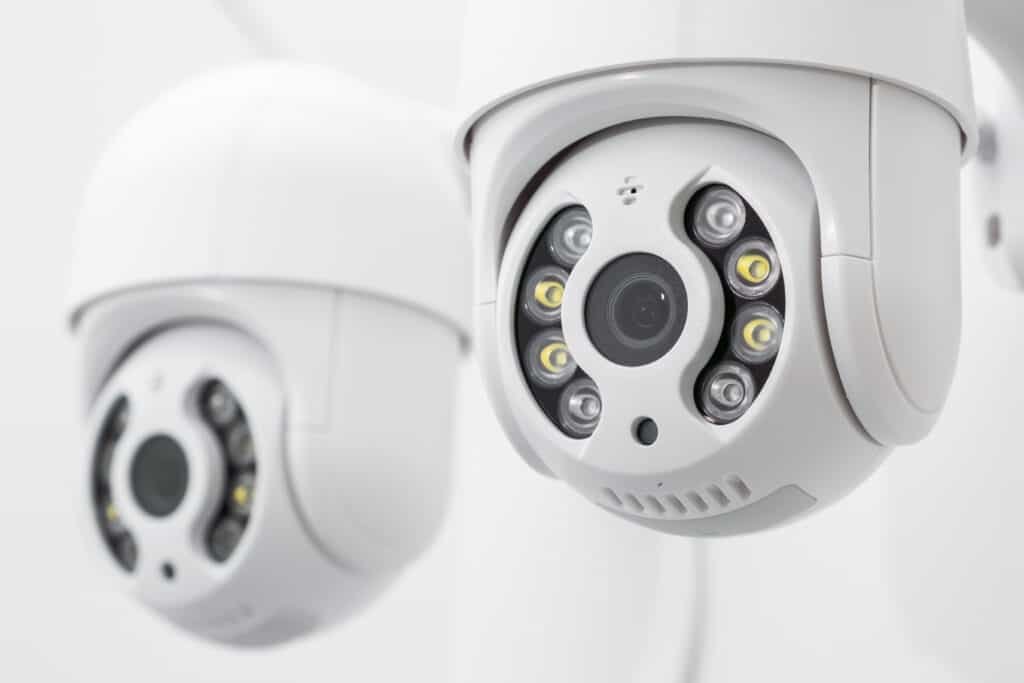
By choosing these simple DIY options, you can enhance your home security measures while keeping costs down.
Check out our review of home CCTV cameras
Affordable Technology Options
Home security doesn’t have to break the bank. Here are some affordable technology options to help you secure your home on a budget,
Smart plugs – These allow you to control and automate your lights, making it look like someone is home even when you’re not.
Wi-Fi cameras – Wireless security cameras can be installed indoors or outdoors, and they allow you to monitor your home remotely.
Smart locks – The latest smart locks are affordable and provide access control convenience by allowing homeowners to remotely lock and unlock doors via smartphone or voice assistant.
Outdoor lighting – Outdoor lighting helps deter burglars by illuminating dark areas around your property, making it harder for criminals to hide.
Door and window sensors – Affordable door and window sensors that connect to a security system can alert you immediately if someone tries to gain entry into your home.
DIY alarm systems – A do-it-yourself (DIY) alarm system is an affordable way to secure your home without paying monthly fees for professional monitoring services.
Smart alarm systems – Whilst some professionally installed smart alarm systems can incur installation costs, there are a new breed of cheaper, easy to install smart alarm systems that offer a cost effective alternative to professionally home alarm system.
Remember, no matter what type of security measures you choose, it’s important not to neglect the basics; secure all windows and doors with appropriate locks, trim back bushes around your house so that there are no hiding spots for potential burglars, and consider getting a dog – they are known as man’s best friend after all!
Low-cost Security Measures
Keeping your home secure doesn’t have to cost a fortune. Here are some low-cost security measures you can take:
Install door and window sensors – These are an affordable way to alert you if someone opens a door or window without your knowledge.
Keep your shrubs trimmed – Overgrown vegetation can provide cover for intruders, so keep your bushes trimmed and tidy.
Invest in motion sensor lights – Motion sensor lights are a great way to deter burglars, as they will be startled by the sudden burst of light.
Use timers for your lights – Timers can make it look like someone is home even when you’re not, which can discourage would-be burglars.
Purchase a fake security camera – Even though it won’t provide actual video footage, a fake security camera can still be enough to deter some opportunistic burglars who want an easy target.
Make use of smart home technology – Many smart home devices such as smart plugs and thermostats have built-in security features that allow you to control who has access to your home remotely from your phone or computer.
Use deadbolts on all exterior doors – This is an inexpensive but effective way to improve the security of your home’s main entry points.
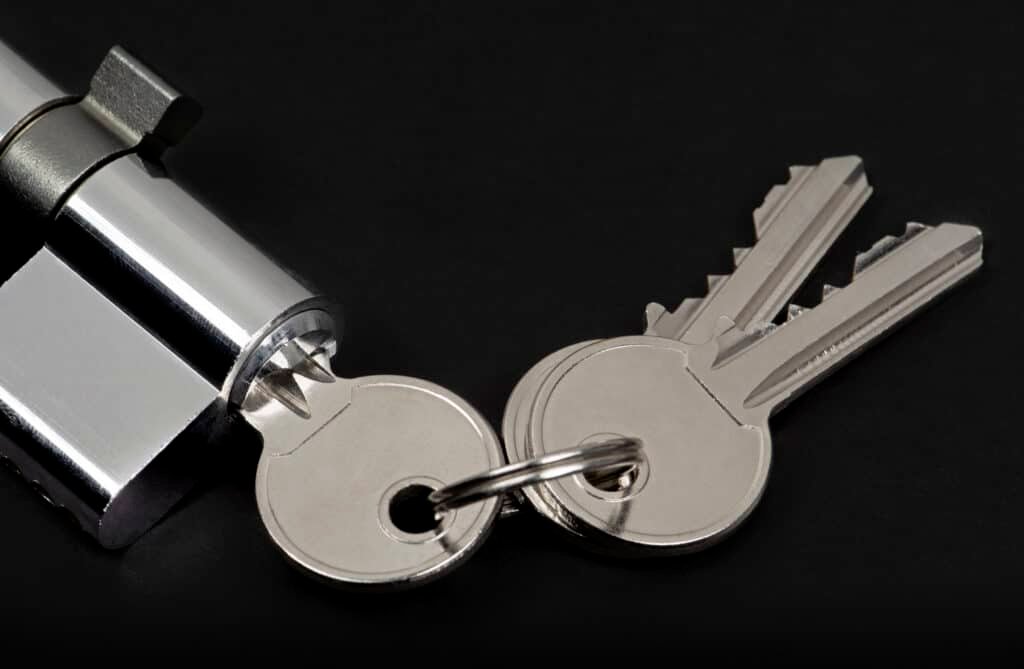
Remember, some of the best low-cost security measures don’t require any money at all! Simple habits like always keeping doors locked and windows closed while also being mindful about what you post on social media can go a long way in keeping your home safe and secure.
Top Home Security Systems Of 2023
The top home security systems of 2023 include Vivint Smart Home, ADT Command, SimpliSafe Home Security System, Ring Alarm Pro, and Wyze Home Monitoring.
Vivint Smart Home
Vivint Smart Home is one of the top home security systems in 2023 due to their advanced technology and easy-to-use system. Their security cameras have features such as live streaming, motion detection, and night vision.
In addition, they offer smart locks that can be controlled remotely through a mobile app, allowing homeowners to let trusted individuals into their homes even when they are away.
Aside from traditional home security measures, Vivint also offers smart home technology integration for added convenience. Homeowners can control their thermostats, lighting, and other devices through their Vivint system or voice commands with Alexa or Google Assistant.
ADT Command
ADT Command is a comprehensive home security system that provides 24/7 monitoring and protection against burglars, fire, and carbon monoxide. The system includes advanced features such as video surveillance, remote control of smart home devices, voice control through Amazon Alexa or Google Assistant, and geo-fencing to trigger events automatically when you arrive at or leave your home.
One of the standout features of ADT Command is its integration with other smart home devices like thermostats and door locks. This allows users to remotely control their homes’ temperature and lock/unlock doors from their smartphones.
In addition, ADT has a strong reputation in the industry for providing reliable service and quick response times in case of an emergency.
SimpliSafe Home Security System
One of the top home security systems on the market is the SimpliSafe Home Security System. This system provides 24/7 professional monitoring with no long-term contracts, making it a flexible and affordable choice for homeowners.
Additionally, SimpliSafe offers smart home integration that allows users to control their security system from anywhere using a smartphone app. With over three million customers and an A+ rating from the Better Business Bureau, SimpliSafe has proven itself as a reliable option for those looking to protect their homes.
Ring Alarm Pro
Ring Alarm Pro is a top home security system that offers users peace of mind. It has numerous features that make it stand out from other systems and gives homeowners an extra layer of protection.
The system includes door and window sensors, motion detectors, a siren alarm, and a mobile app for alerts and control.
One impressive feature of the Ring Alarm Pro system is its affordable pricing options. Homeowners can choose to have professional monitoring or opt for self-monitoring without any contract commitments.
This flexibility makes the system accessible to more people on different budgets.
According to the 2023 State of Safety report’s data revealing most burglaries occur during daylight hours when occupants are not at home; it highlights why having a reliable security system like Ring Alarm Pro is essential in keeping your property safe from intruders day or night.
Wyze Home Monitoring
Wyze Home Monitoring is a smart and affordable security system designed to help you keep your home safe. It offers customizable features that can be set up easily using the Wyze app on your smartphone, making it accessible even when you’re away from home.
One of the main advantages of Wyze Home Monitoring is its low cost compared to other professional monitoring options. This makes it an attractive option for those who want peace of mind without breaking the bank.
Additionally, if you choose to self-monitor your home via the app, you’ll receive instant notifications in case of any suspicious activity detected by your devices.
Conclusion
Keeping your home and loved ones safe is of the utmost importance, and having a solid home security system in place can provide you with peace of mind. Assessing your specific needs, choosing the right system, and enhancing security measures through simple steps like securing doors and windows or installing outdoor lighting are all important considerations.
Even on a budget, there are many affordable options available for DIY or professional monitoring systems. With top-rated systems such as Vivint Smart Home or SimpliSafe Home Security System readily available to choose from in 2023, protecting your home has never been easier.
FAQ’s:
1. What are the most effective ways to improve home security?
Effective measures for improving home security include installing robust locks, deadbolts and burglar alarms, securing windows with locking mechanisms or window bars, fitting motion-sensor lights on outdoor spaces and keeping valuables out of sight.
2. Do I need a professional to install a home security system?
While it is possible to install some relatively simple systems yourself, such as wireless alarm or camera systems – more complex installations may require help from a qualified electrician. It can also be beneficial to seek advice from reputable suppliers regarding which options suit your specific requirements best.
3. How can I make my property less vulnerable to break-ins?
There are several easy steps you can take to deter burglars including maintaining uncluttered gardens that don’t obstruct views of your property; using timer switches on lights/devices while you’re away from your residence (to simulate activity); making sure doors/windows close and lock properly – even if only leaving for short periods like running errands; and installing CCTV cameras or other advanced monitoring tools.
4. Are smart homes safer than traditional ones?
Smart homes offer numerous benefits in terms of automation, convenience & control over various aspects of one’s daily routine – however they are not necessarily “safer” as there will always be risks associated with any technological system connected online: potential hacking attacks/cybersecurity breaches etc..
The effectiveness of smart devices depends largely upon how well they have been designed/implemented by manufacturers & service providers in order mitigate any vulnerabilities at various points along their lifecycle – but ultimately it is up homeowners secure their networks carefully through monitoring usage patterns closely, regularly updating passwords/accounts details when necessary and ensuring all data remains encrypted/private where possible depending upon type device used within ecosystem installed at residence(s).
Useful Links
https://www.safewise.com/resources/security-stats-facts/
https://millennium-fire.com/10-surprising-facts-burglary-security-systems/
https://www.security.org/home-security-systems/tips/
https://www.caldersecurity.co.uk/40-security-facts-burglar-alarms/
http://bravothree.com/interesting-security-facts/
https://www.cssltd.co.uk/home-security-facts-and-figures/
https://thinkprotection.com/blog/5-important-home-security-facts/
With over three decades of experience in the heart of London’s financial sector, I have dedicated my career to the pursuit of robust cybersecurity practices and IT leadership. As a Certified Information Systems Security Professional (CISSP), Certified Information Security Manager (CISM), Certified Chief Information Security Officer (C|CISO), Certified Ethical Hacker (CEH), and Computer Hacking Forensic Investigator (CHFI), I bring a wealth of knowledge and expertise to the table.
My journey in the field of cybersecurity has not only been about personal growth but also about sharing my insights with others. As an international speaker, I have had the privilege of addressing audiences worldwide, discussing the importance of cybersecurity in today’s digital age. My passion for knowledge sharing extends to my work as an author and blogger, where I delve into the complexities of cybersecurity, offering practical advice and thought leadership.
In my role as a CISO and Head of IT, I have overseen the development and implementation of comprehensive information security and IT strategies. My focus has always been on creating resilient systems capable of withstanding the evolving landscape of cyber threats.
My Master’s degree in Cybersecurity has provided a solid academic foundation, which, when combined with my practical experience, allows me to approach cybersecurity from a holistic perspective.
I am always open to connecting with other professionals in the field, sharing knowledge, and exploring new opportunities. Let’s secure the digital world together.

